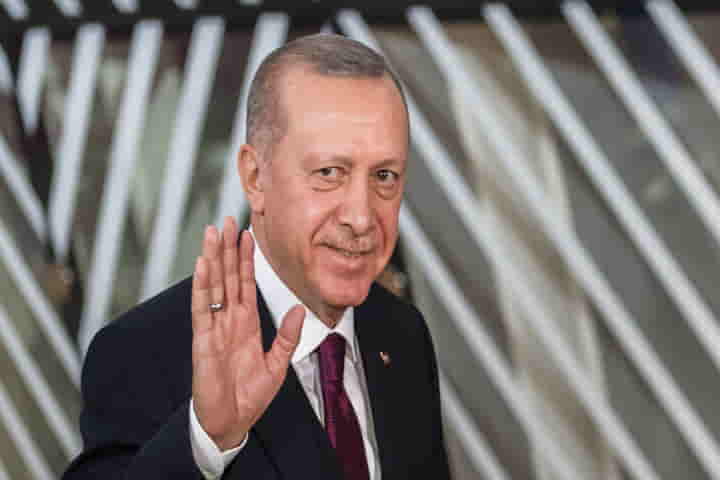He is feted in Baku, hailed in Kiev, patronised in Doha, eulogized in Triopoli; but Turkey's Reccep Tayip Erdogan may see his strongman charisma and neo-Ottoman dreams checked by none other than the mediaeval, intransigent Taliban. For all of his tough talk and Islamic piety has failed to impress the Taliban who want to see the back of Turkish forces along with that of the US and NATO.
Turkey and Afghanistan are marking a century since the establishment of diplomatic ties this year; Turkey may have been the first country to open a diplomatic office in Kabul. But,as part of NATO, it remains an occupying force for the Taliban. Turkish troops have long had a presence in Afghanistan, it has established schools, offers Turkish scholarships, has trained military personnel, invested in capacity building, increased cultural support, established contact with different Afghan factions, initiating the Heart of Asia- Istanbul process, and even policed the Hamid Karzai International airport in Kabul.
However, while Turkey's presence in Afganistan has resulted in strong ties with the Afghan government, its offer of continuing to guard and offer security to the airport even after September 11, by when the remaining US and NATO troops would have pulled out from the war-torn country has not gone down well with the militant group which insists that Turkey must leave Afghanistan to Afghans, while waging one of the worst military offensives inside Afghanistan.
Also Read: Warlord Rashid Dostum, “King” of Mazar-e-Sharif pledges to kill Taliban in Afghanistan
Turkey's offer, it is widely believed, stems from its desire to mend fences with the US which had been severely strained by its decision to procure S400 Triumf missile systems from Russia even as the latter's relations with the US deteriorated. But equally, by maintaining a military and intelligence presence in Afghanistan, dubbed the Heart of Asia, conecting as it is Central and South Asia, would give Turkey a strategic foothold in the heart of Eurasia, contiguous to the Turkic world, a union Erdogan has assiduously been trying to build up, while positioning himself as a leader both of the Turkic and the Islamic world.
Working on century long relations, which Turkish diplomats tout as being built on common civiliational linkages and heritage of Mevlana Jalaluddin Rumi, Erdogan, with his close links to Qatar, which has been hosting the Taliban for almost a decade, had thought it would be a cake walk. After all, Turkey's defence industry and Erdogan's ummah rhetoric has won him friends in many conflict hotspots recently – from Baku to Gaza to Tripoli. Closer home in Pakistan and Malaysia, he has been hailed as the new leader of the Muslim world, a new avatar of Ertrgrul. According to Afghan analysts like Tamim Asey, who has also served as Afghanistan's Deputy Minister of Defence, as well as Turkish analysts
Turkey as a powerful Muslim country, and a NATO member with close ties to Pakistan, enjoys a unique position. ''The Taliban should be able to conduct talks with Turkey much easier because Turkey does not have any conflicting issues with their (the Taliban's) beliefs," Erdogan said in July. That, however, is not to be.
But, just why are the Taliban spurning Erdogan and his offer?
Also Read: Why are Central Asian countries so spooked by the turmoil in Afghanistan?
First, as part of NATO, who helped America and rendered support to the Afghan security forces, and with its modern, secular image, Turkey's image may have been already compromised.
Secondly, Turkey's ability to talk with all Afghan factions, in particular ,with the Turkic groups in the north of the country may have gone against it. Especially Turkey's close relations with Uzbek General Abdul Rashid Dostum who helped America's Operation Enduring Freedom war to topple the Taliban regime, may have alienated the Taliban. Possibly heading the most powerful militia, Dostum is hated by the Taliban for allegedly having thousands of surrendered Taliban militants being killed by suffocation en route to his stronghold of Sheberghan. This makes it irreconcilable for many in the militant group.
Finally, Turkey's friend and ally, Pakistan may also have something to do with it. Turkey may find that the bonhomie displayed by imran khan, especially when it came to Kashmir may not endure when it comes to Afganistan. For here, Pakistan may like to be the major power. A Turkish presence would eclipse Pakistan any which way – militarily, economically, culturally. If Erdogan had banked on Turkey's close ties with Pakistan paving the way for it to emerge facilitator and mediator between the Taliban and other factions then he can have a rethink. Nowadays opeds in the Pakistanis press instead of eulogising Turkey as the new leader of the Muslim world are politely asking Turkey to back off from the Afghan pie.
While Turkey has tried to downplay the Taliban's hostility, saying its troops will not engage in any combat role in Afghanistan, it has now moved ahead with a NATO training program for Afghan troops in Turkey, in what is a first of its kind outside Afganistan. With a fierce battle raging inside Afghanistan with Taliban militants pitched against government troops how the training programme will be perceived by the Taliban remains to be seen. But for now it seems to have put a spanner in Turkey's expansionist policy in the Heart of Asia.
(Aditi Bhaduri is a columnist specialising in Eurasian geopolitics. Views expressed are personal)



















